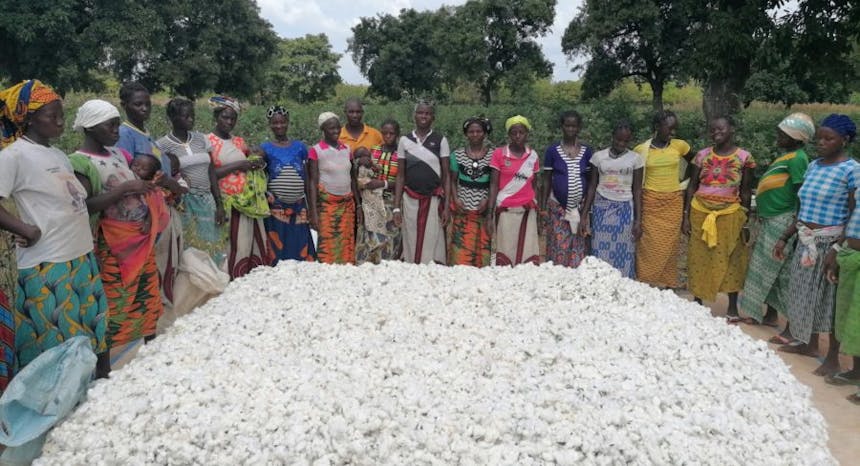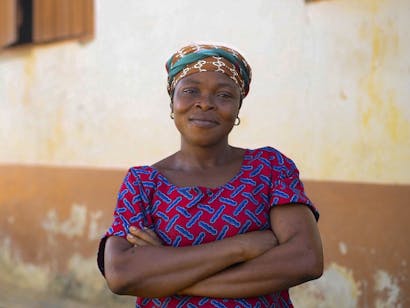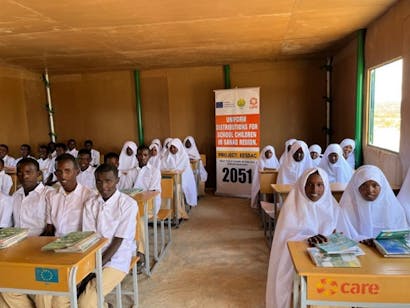Soro Naminata is a peanut and cotton farmer
Soro Naminata (30) from Nagbalavogo in the North of Ivory Coast is a peanut and cotton farmer. She grew up in poverty and never went to school.

The impact of COVID-19
Sadly, the COVID-19 pandemic is having a devastating impact: “COVID-19 has affected our life so badly that we are afraid and worried about the future. We can no longer sell our peanuts at the market to earn money for meals. In the future I see starvation and misery. But we are thinking about cultivating other crops, like beans, so we can eat better.”
Managing finances
Soro is a member of a Village Savings & Loans Association, which was set up with support from CARE. Through the group and training, Soro and her peers have learned about managing their finances, especially during fluctuating growing periods. She explains: “We learned that, after the harvest, we shouldn’t sell all our peanuts. We should hold some back so we can sell them at a higher price later on.”
Managing her income has also become easier: “Previously, I would spend all my money meeting expenses as they arose, whether they were useful or not, and I found myself with no products and no money. Now I can prioritise my income and not waste any of the money I earn.” These financial skills are vital now more than ever as Soro’s income dries up due to the pandemic.
Group solidarity and strength
CARE has also connected the group with the bank, Soro adds: “I now have my own bank account and I feel very strong and different from my life a few years ago. CARE encouraged us to build a good relationship with the bank for the future and to deposit the income we earn.”

Soro’s group has been able to take out a group loan from the bank to buy a huller, which speeds up the production process. She adds: “Before, we spent hours sitting and shelling the peanuts and we lost many customers. Now we have many satisfied customers.” Soro explains that every member is active in the repayment of the loan.
As a group, the women have found solidarity and strength, Soro adds: “Together we are united and much stronger. When you are alone, you face difficulties meeting the bank’s requirements. Together we have more courage.”
More women involvement
Soro’s group is also connected to other villages nearby where they exchange goods. The group has also been visited by Madame Sekongo, a successful local entrepreneur in the farming industry, who was appointed as a role model by CARE to inspire and encourage other women. Soro adds: “Before, women struggled to speak out in the community and defend their rights, including at a commercial level. Now we can express ourselves and set the cost of our goods and negotiate more confidently with buyers. We feel like our opinions are now listened to and we feel involved and respected. The place of women is growing in our communities.”
Despite the destructive impact of COVID-19, Soro still shares a message of hope for the future:
“To my sisters around the world, I encourage you not to lose hope. Sooner or later COVID-19 will end, especially if we respect the safety measures.”


